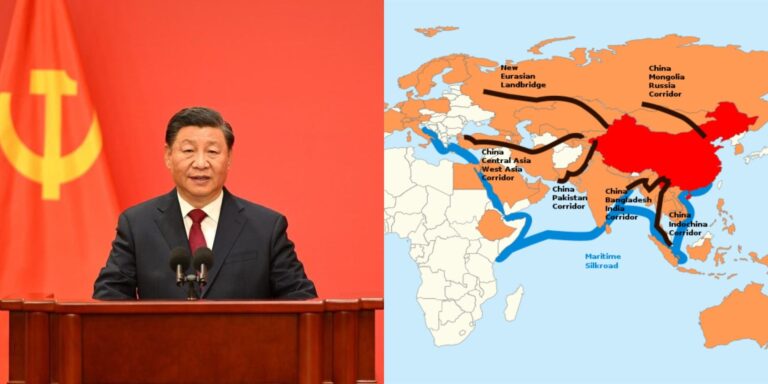
Introduction:
China’s increasing presence and assertive actions in Nepal have raised concerns and generated a sense of unease in Kathmandu. As China expands its influence in South Asia, its unilateral actions in Nepal have implications for the country’s political stability, economic development, and strategic alignment. This article delves into the impact of China’s unilateral actions on Nepal, analyzes the concerns in Kathmandu, and explores the evolving dynamics between the two nations.
Advertisement
Table of Contents
1. China’s Growing Influence in Nepal:
China has significantly expanded its influence in Nepal in recent years, mainly through increased economic cooperation, infrastructure development projects, and diplomatic engagement. Chinese investment and assistance have played a crucial role in Nepal’s development, creating dependencies and shaping bilateral relations.
2. China’s Unilateral Actions in Nepal:
China’s unilateral actions in Nepal include the encroachment of Nepalese territory, involvement in domestic politics, and attempts to influence Nepal’s foreign policy decisions. These actions have raised concerns about Nepal’s sovereignty, autonomy, and the potential erosion of its independent decision-making processes.
3. Implications for Nepal’s Political Stability:
China’s interference in Nepal’s domestic politics and its support for specific political factions have contributed to political instability and polarization within the country. Nepal’s political landscape has witnessed challenges in forming stable governments and maintaining a unified national agenda.
4. Economic Ramifications for Nepal:
While Chinese investments have supported Nepal’s infrastructure development and economic growth, they have also raised concerns about debt dependency, unfair trade practices, and the impact on local industries. Nepal needs to carefully balance its economic cooperation with China to ensure sustainable and equitable development.
Advertisement
5. Strategic Considerations and Geopolitical Dynamics:
China’s expanding presence in Nepal has strategic implications, particularly in the context of the broader geopolitical dynamics in the region. Nepal’s proximity to India and its historically close ties with the country create complexities in navigating its relations with China while maintaining its strategic autonomy.
6. The Concerns in Kathmandu:
The concerns in Kathmandu regarding China’s unilateral actions include apprehensions about territorial integrity, national sovereignty, economic dependency, and the preservation of Nepal’s distinct cultural and political identity. Balancing China’s influence with the country’s own interests and values poses a significant challenge for Nepal.
7. Frequently Asked Questions (FAQs):
Q: How has China’s influence in Nepal grown in recent years?
A: China’s influence in Nepal has grown through increased economic cooperation, infrastructure projects, and diplomatic engagement, including investments and assistance in development initiatives.
Q: What are some examples of China’s unilateral actions in Nepal?
A: China’s unilateral actions in Nepal include encroachments on Nepalese territory, involvement in domestic politics, and attempts to shape Nepal’s foreign policy decisions.
Q: How does China’s influence impact Nepal’s political stability?
A: China’s interference in Nepal’s domestic politics has contributed to political instability and polarization, making it challenging to form stable governments and maintain a unified national agenda.
Q: What are the economic ramifications of China’s influence in Nepal?
A: While Chinese investments have supported Nepal’s infrastructure development and economic growth, concerns exist regarding debt dependency, unfair trade practices, and the impact on local industries.
Advertisement
Conclusion:
China’s unilateral actions in Nepal have raised concerns and created a sense of unease in Kathmandu. The expanding influence of China in Nepal carries implications for political stability, economic development, and strategic considerations. As Nepal navigates its relationship with China, it must carefully balance its own interests, values, and the preservation of its sovereignty and cultural identity. Ensuring a harmonious and mutually beneficial relationship with China while safeguarding Nepal’s autonomy poses significant challenges for the country.